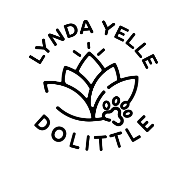Message from the Bees and the Worms
When insects agree to collaborate with humans
Bees are both simple and sophisticated beings. It pays to listen to their message!
The fear of insects is widespread. It seems even to be part of a certain female conditioning. How many "bugs" have you killed because you were afraid of being bitten? But insects have a conscience and a soul, too. Each month, I lead Animal Communication Group Sessions, in French and English, in which participants ask a question to the animal of their choice. I was surprised the first time a participant chose to address a fly! But the communication went well and the fly understood the lady's need for tranquility on her patio...
In the last session, two participants asked insects a question. One chose bees and the other chose compost worms. I am sharing both messages with you because they were so interesting.
Message from the bees by animal communication
Brigitte, one of my students who has taken the Animal Communication Level 1 and 2 trainings, asks the bees this question, "What would attract you, what would you like to have in my vegetable garden?"
Right away, a bee comes up on behalf of the bee community. The bee messenger shows up with long eyelashes, just like they are depicted in cartoons or comic books. She is excited, even feverish to be with us and to have the opportunity to share with humans.
Here's what she says:
"I know you like everything to be clean, neat, and tidy. It's like you want to take a picture every time, it's so beautiful! Of course, that's inviting in itself, but what you have to remember is that we bees really like the wild state of things. If you're doing that beautiful garden and vegetable patch, can you leave things wild in a little corner? It really helps us to come and get what we need. When I say wild, I mean all kinds of plants like clover, wild daisies, and dandelions. I know that humans are almost allergic to dandelions but, for us, it's really a flower that we love.
The colors that attract us are mostly yellow, but we also like the blue-mauve. Of course, it also depends on the smell. I don't know if you want to put herbs in your garden, like basil and mint. We really like that.
There's also something that humans don't think about much. It's not because you don't want to, but you forget to offer us water. Give us water! It's hot in the summer and we are thirsty. So, give us water! Sometimes basins, containers, or plates are too deep for us. We can't drink water from a fountain unless you put things we can lay on. The ideal is a small, shallow plate that you can put pebbles in for us to stand on to drink. Put it near the vegetable garden, the wilderness area.
I know this can take away a bit of the beauty of your vegetable garden, but you're asking me so I'm taking this opportunity to express to you what we really like. Obviously, in the vegetable gardens, there are all the flowers from the vegetables before the fruits and vegetables come out of these flowers. The cucumber flowers, for example, we like very much. You already know that, because you have a connection with us, so don't hesitate to ask us.
Even when you start to play in the earth, invite us and you will see that at some point, oops, if we start to turn around you, don't chase us! We come to talk to you, we come to accompany you. That's what I want to tell you to answer your request but, above all, thank you for your kindness, for asking us this question in order to know how we can better cohabit. I can't wait to meet you in your vegetable garden!"
In the end, when I closed the communication with the messenger bee, I saw some approaching, very numerous and all excited! They are like little lights that activate in front of me. They can't wait!
Here's what a participant in the group session found the next day on the internet and shared:
"Did you know that the dandelion is a most important flower for bees? Bees are also attracted to yellow. If you don't like dandelions, make a small gesture of compromise. Leave a strip of dandelions for the bees, as they need all those nutrients after a long winter. You can mow the lawn before these flowers go to seed if you don't want to lose control. Once the flower has dried, the bee is done with its job. Please do not use synthetic, harmful products. The dandelion only lasts for two weeks and I must admit that it is very pretty. I, for one, don't need to hide it... During this time, it's yellow as far as the eye can see at my house!"
Message from the compost worms by animal communication
Micheline, another participant, asks this question, "Do you have anything to share with us tonight?" A community spokesperson comes into my awareness. Here is what he says with a sense of humor.
“We worms are that unknown and mostly misunderstood species. Yet we are found everywhere. As soon as you turn a stone, who appears? It's us! As soon as you play in your flowerbeds, we are there. After the rain, we are visible to those who choose to look at us. The role we play at the ground level is very important. We are the ploughmen. Just as you like to plow your gardens, your flowerbeds, your fields, we also do it but on another level. We take care of maintaining a certain balance in what makes up the different soils, that is, we maintain a balance between the good bacterias and those that are more harmful. We make sure that the soil is well-aerated. We also transport a lot of nutrients from one place to another. That's it! We are also popular where there is good soil. Once we've filled up, we know how to move around and distribute what we've been able to collect as nutrients and minerals to share and also to feed the soil in other places.
We are also used to feed certain animals, whether they are winged or fish. Yes, you immediately get the image of someone going fishing! But you know, there are ways to feed fish without getting caught. We're part of the ecology of the system that needs each of us, each species, the contribution of each of us to maintain that balance and to restore it in certain places and environments.
There is no one species in our race that is better than another or more important than another. The idea is that everyone is doing their part and serving the reason we are here.
Don't be afraid of us, but take the time to get to know us and meet us. Let us touch you and let us approach you without immediately trying to push us away. Observe us more and discover us. We are very, very important in the balance of the ecology, in your gardens, in your beloved flowerbeds that are more numerous, we dare to say. This is multiplying in many ways.
We are happy to be among you and I thank you for including us in what you are doing, That is so important for you, but also for the environment through composting in which you have been involved for some time now. You have a lot of knowledge in this area and do not hesitate to share it. We are happy to be among you. Thank you for your curiosity and for your desire to get to know us better, if only to observe us more closely without chasing us! We look forward to seeing you soon because you will, like us, be moving around more in the near future when the weather allows it. We will be there with great pleasure.”
Following the group meeting, Micheline sent me this by Messenger:
"When I arrived home, I opened the compost bin and there were several worms on the inside walls. Normally they stay hidden, you don't see them. I think they wanted to make contact. Interesting to see that they are so aware of their role and assume it completely, even if it is to serve as food for birds and fish. Thanks for the nice exchange. Maybe we'll talk to them again later."
New perceptions?
I hope these messages from the bees and worms have helped broaden your perceptions. The cohabitation should change this summer, don't you think? Feel free to write to me privately or share your experiences in my Facebook group.
Lynda Yelle Dolittle


